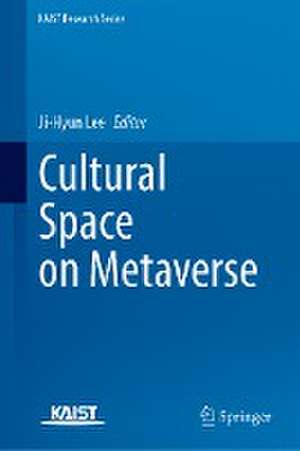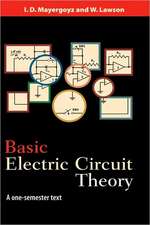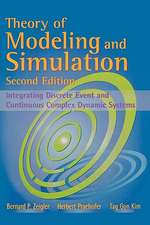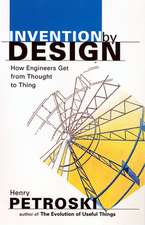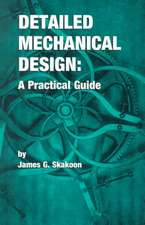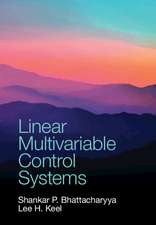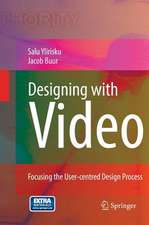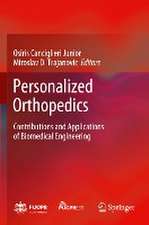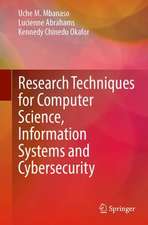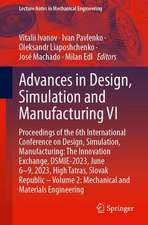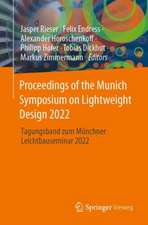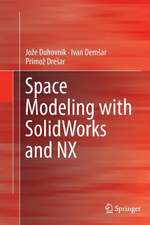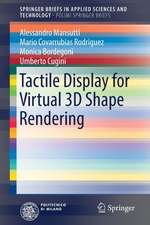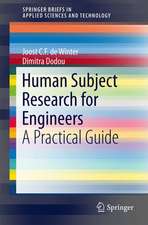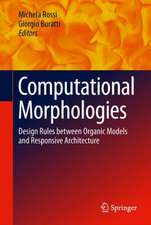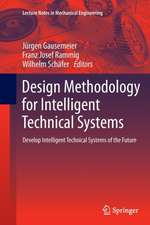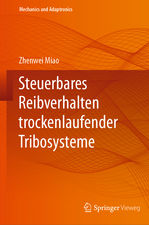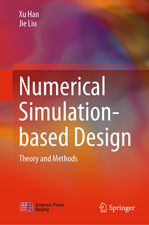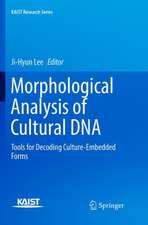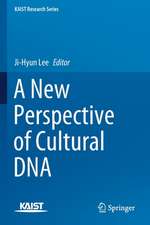Cultural Space on Metaverse: KAIST Research Series
Editat de Ji-Hyun Leeen Limba Engleză Hardback – 26 sep 2023
This book consists of some selected papers presented at the 4th cultural DNA workshop. The papers include topics from three different perspectives: insightful analysis, intelligent synthesis and cutting-edge tools to better understand cultural DNA.
It is this diverse perspective toward cultural DNA that makes this book special and suggestive. This book can be suggestive especially for the designers trying to find the very essence, the archetype, and the building blocks of our environment for the incorporation of social and cultural factors into their designs.
This book consists of some selected papers presented as first drafts at the 4th cultural DNA workshop. The papers include topics from three different perspectives: insightful analysis, intelligent synthesis and cutting-edge tools to better understand cultural DNA. Preț: 893.71 lei
Preț vechi: 1089.89 lei
-18% Nou
Puncte Express: 1341
Preț estimativ în valută:
171.09€ • 178.52$ • 143.42£
171.09€ • 178.52$ • 143.42£
Carte disponibilă
Livrare economică 20 februarie-06 martie
Preluare comenzi: 021 569.72.76
Specificații
ISBN-13: 9789819923137
ISBN-10: 9819923131
Pagini: 191
Ilustrații: X, 191 p. 68 illus., 59 illus. in color.
Dimensiuni: 155 x 235 mm
Greutate: 0.52 kg
Ediția:1st ed. 2024
Editura: Springer Nature Singapore
Colecția Springer
Seria KAIST Research Series
Locul publicării:Singapore, Singapore
ISBN-10: 9819923131
Pagini: 191
Ilustrații: X, 191 p. 68 illus., 59 illus. in color.
Dimensiuni: 155 x 235 mm
Greutate: 0.52 kg
Ediția:1st ed. 2024
Editura: Springer Nature Singapore
Colecția Springer
Seria KAIST Research Series
Locul publicării:Singapore, Singapore
Cuprins
Future Education.- Simulation in Virtual Space.- Smart Architecture.- Communication and Cultural Value.
Notă biografică
Ji-Hyun Lee is a Professor at the Graduate School of Culture Technology (GSCT) in Korea Advanced Institute of Science Technology (KAIST). She received her Ph.D. in School of Architecture (Computational Design) at Carnegie Mellon University writing a thesis about integrating housing design and case-based reasoning. Since joining the GSCT at KAIST, her research focus narrowed down to three interdisciplinary areas that are not mutually exclusive: (1) calculation for UX + service design, (2) cultural DNA with morphological analysis, and (3) Future Education with AI. These explorations result in computer-based frameworks or systems contributing to the enhancement of the calculability using algorithmic and/or heuristic computational methods. In other words, her research focus is on ‘computational culture’ as an extension of computational design.
Currently, she is Director of the Information-Based Design (IBD) Research Group in KAIST. She was the Director in Division of Artrs, Culture and Convergence of National Research Foundation (NRF), Korea. She served for the Secretary of the Association for Computer-Aided Architectural Design Research in Asia (CAADRIA) from 2008 to 2010, and received Sasada prize from the CAADRIA in 2019. She also serves as an Editor-in-chief of Korea Institute of Design Research Society (KIDRS), a Director of Korean Society of Service Design and Innovation (KSSDI), Korean Society of Design Science (KSDS) and HCI Korea (KHCI).
Textul de pe ultima copertă
This book consists of some selected papers presented at the 4th cultural DNA workshop. The papers include topics from three different perspectives: insightful analysis, intelligent synthesis and cutting-edge tools to better understand cultural DNA.
It is this diverse perspective toward cultural DNA that makes this book special and suggestive. This book can be suggestive especially for the designers trying to find the very essence, the archetype, and the building blocks of our environment for the incorporation of social and cultural factors into their designs.
This book consists of some selected papers presented as first drafts at the 4th cultural DNA workshop. The papers include topics from three different perspectives: insightful analysis, intelligent synthesis and cutting-edge tools to better understand cultural DNA.Caracteristici
Describes fundamental theories and methodologies behind cultural DNA research Brings computational design research from architectural design together with mechanical engineering design groups Introduces various tools under recent developments that help academics and practitioners
